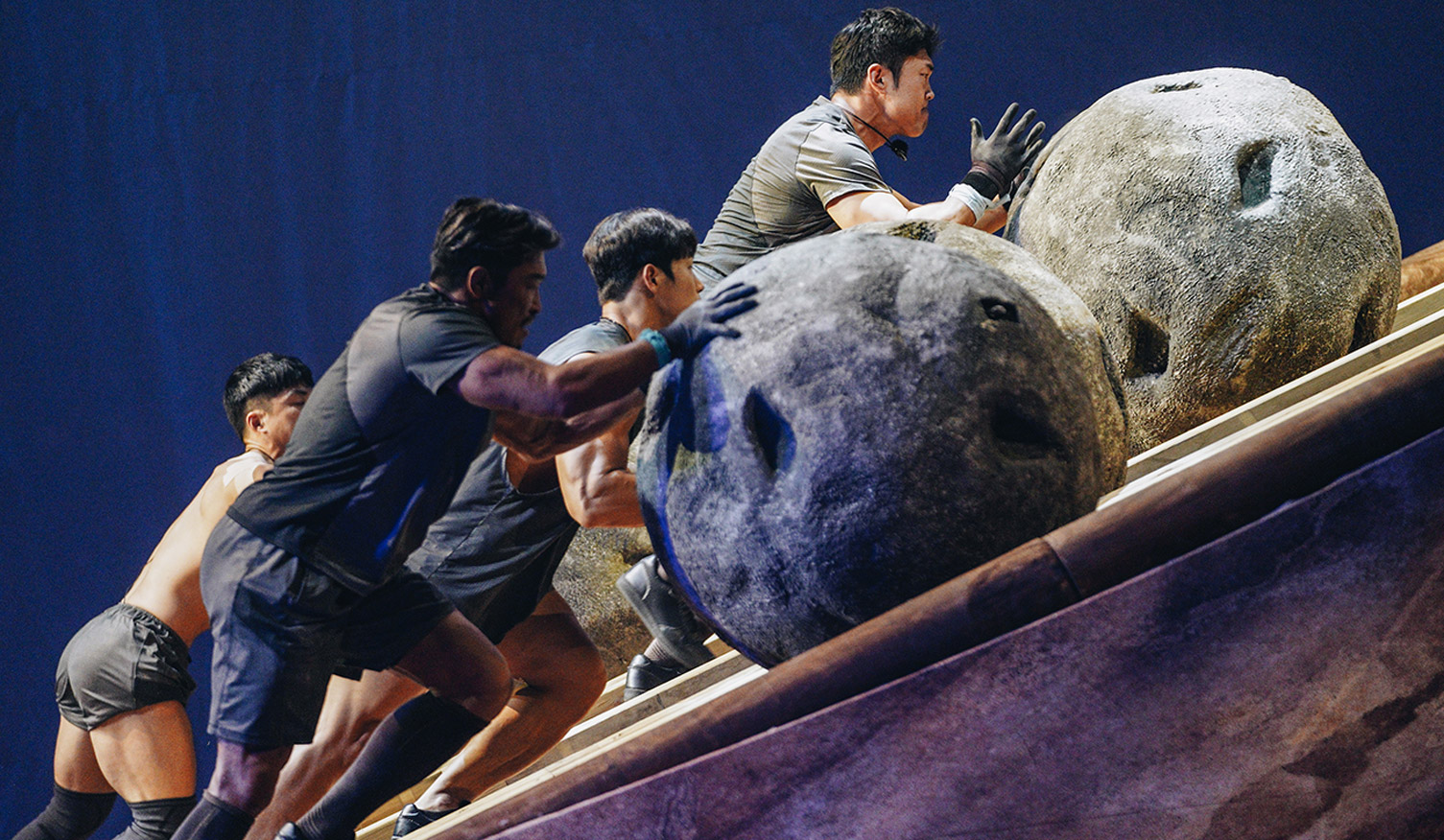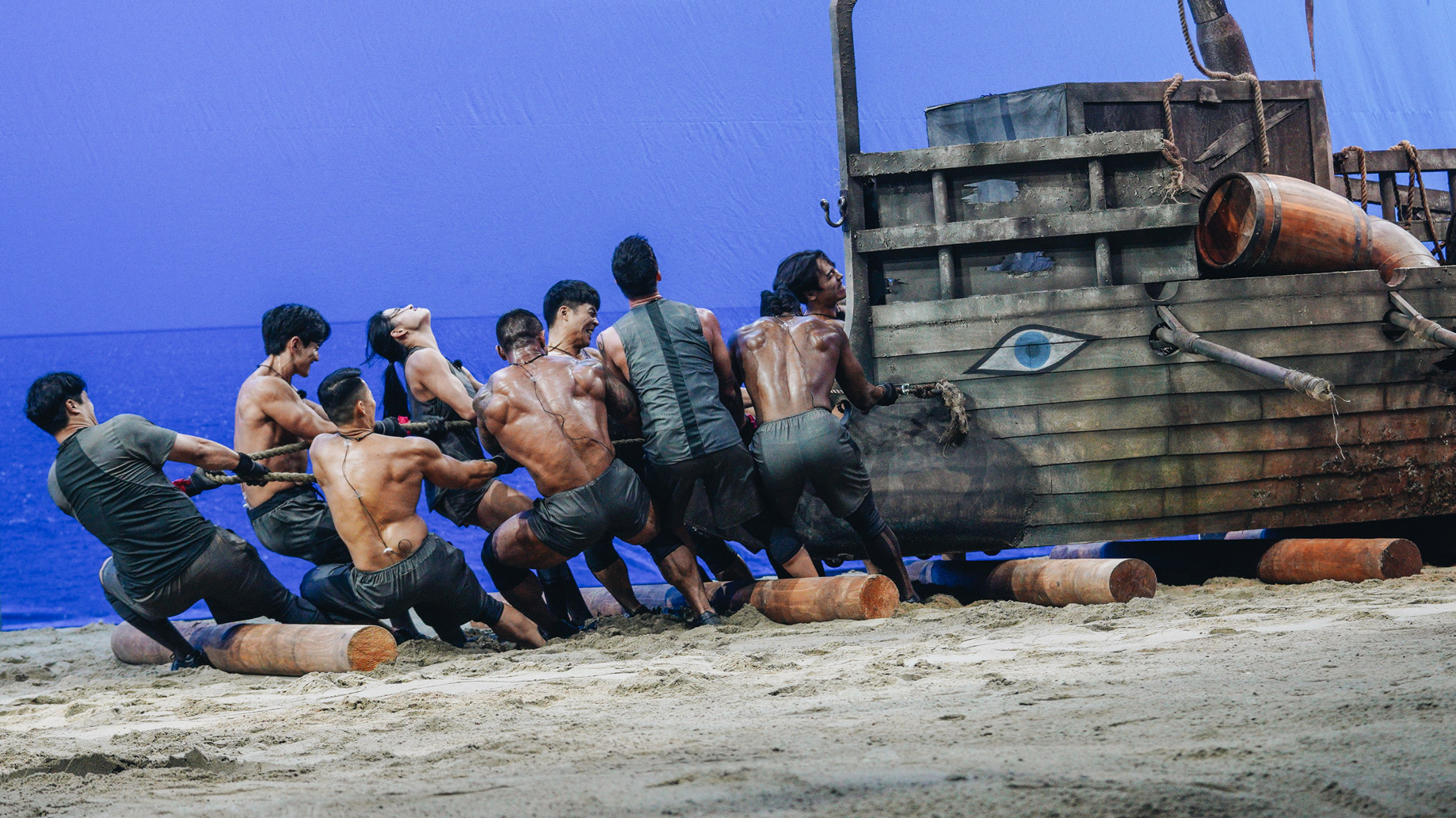Why Physical: 100 is the most intense – and unexpectedly cozy – fitness show I've ever watched
Why I'm so excited for the return of Physical: 100

Sign up for breaking news, reviews, opinion, top tech deals, and more.
You are now subscribed
Your newsletter sign-up was successful
Some of my Whatsapp chats are about to get very busy once again, with heated discussions about lifting boulders and pulling ropes. Physical: 100, the Korean fitness show that turned into an international phenomenon once it was snapped up by Netflix, is back on our screens again, and I couldn’t be more excited.
The premise is simple, and good content for perhaps the best streaming service out there: 100 contestants are picked by the producers for skill or fame in the world of fitness, ranging from rugby players and martial artists, to bodybuilders, special forces reservists and emergency service workers. Everyone, regardless of body type, gender or weight, is put through the same set of physically demanding challenges, sometimes in teams and sometimes solo, until only one competitor is left standing.
Physical contests aren’t exactly new in the realm of reality TV, especially for anyone who watched American Gladiators or similar shows growing up. However, a few elements set Physical: 100 apart from the pack; the grimy and dystopian aesthetic for one, straight out of Squid Game. The general vibe is futuristic and industrial, but themed arenas pepper the game ranging from beaches to jungles. It’s a little like a fighting game that allows you to pick your battlefield, but you always return to the same serious menu screen.
The challenges are another highlight: the games are often cruel and creative, ranging from the deceptively simple (I audibly half-groaned, half-cackled when the first challenge of Season 2 was revealed: 100 manual treadmills, which each contestant had to maintain a certain speed on for as long as possible) to the complex. Having tried many of the best treadmills over the years, I knew exactly what they were in for: a whole world of pain, especially the heavier athletes.

Another memorable Season 1 challenge involved loading a wooden ship with heavy crates, then working together as a team to push it across the arena and up a wooden ramp. If you think it sounds hard, you should watch them try it, sweat pouring off the contestants as they haul a boat weighing 1.5 tons up an incline, without the aid of wheels, watching it move less and less with every heave.
But it’s the contestants that really make the show, and they’re almost all uniquely wholesome. As mentioned before, all the contestants are from a variety of different training backgrounds: strongmen rub shoulders with cyclists in sprinting tasks, while climbers match their strength against crossfitters. While one contestant might be great at moving heavy objects across an arena, another can run for much longer, while another can leap six feet in the air onto a stack of crashmats.
They openly and vocally admire each other’s abilities during the competition downtime, and all carry a great deal of respect for each other’s disciplines, asking lots of questions about the less common ones such as luging. There’s a lot of showboating, sure, and each athlete tries their best to win, but it’s not a display of domination. Doing your best to win is presented as a mark of respect to your opponent.
Sign up for breaking news, reviews, opinion, top tech deals, and more.
This is compounded when successful Korean athletes enter the games, such as last season’s veteran mixed martial-artist Choo Sung-Hoon. He was applauded, bowed to, and shown lots of admiration by athletes who far surpassed him in many ways. When paired with another, younger martial artist in a ball-stealing task, the younger athlete bowed to Hoon and requested a short sparring match before they focused on the ball, as it was his dream to go toe-to-toe with the legend.
It was sweet, and I think anyone who has ever been a remotely competitive athlete in any discipline understood how the younger athlete felt in that moment.
This is Physical: 100’s main hook: not the Hunger Games-style worldbuilding, not the gruelling athletic challenges, but the atmosphere of respect and camaraderie between rivals. It’s a beautiful, healthy, poignant display of competitive spirit. Besides, there’s nothing like ordering a lot of takeout and criticizing a world-class athlete’s technique between swigs of beer and mouthfuls of pepperoni pizza.
You might also like:

Matt is TechRadar's expert on all things fitness, wellness and wearable tech.
A former staffer at Men's Health, he holds a Master's Degree in journalism from Cardiff and has written for brands like Runner's World, Women's Health, Men's Fitness, LiveScience and Fit&Well on everything fitness tech, exercise, nutrition and mental wellbeing.
Matt's a keen runner, ex-kickboxer, not averse to the odd yoga flow, and insists everyone should stretch every morning. When he’s not training or writing about health and fitness, he can be found reading doorstop-thick fantasy books with lots of fictional maps in them.
